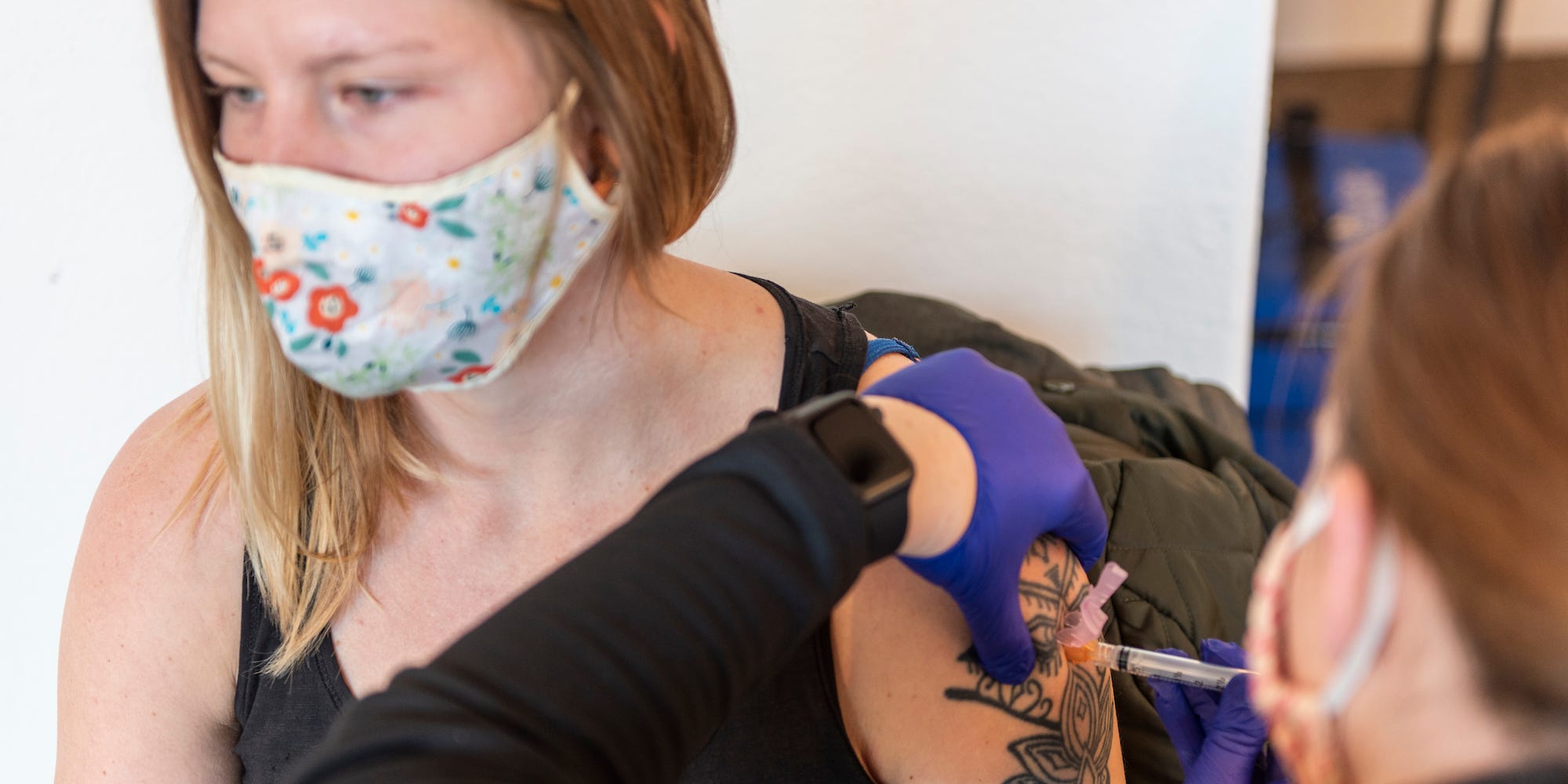
Photo by William Campbell/Getty Images
- The UK strategy to delay the second coronavirus vaccine dose for up to 12 weeks carries real risk.
- New data from Scotland showed protection against hospitalization peaking after five weeks — and then declining.
- Vaccine developers and public-health experts told Insider it’s a mistake to delay second doses.
- Visit the Business section of Insider for more stories.
The UK’s strategy of delaying second coronavirus vaccine doses up to 12 weeks in order to give more people a first shot may carry serious risk.
On Monday, Scottish researchers released data from their vaccination campaign, including more than 1 million people who’ve been immunized, that suggests protection from a single dose peaks and then declines after about five weeks.
The Scottish data hasn’t been published in a medical journal or reviewed by independent scientists. The results were posted as a preprint on Monday.
The experiment used medical records covering 5.4 million people, or 99% of the Scottish population and focused on people who had received a single shot of either Pfizer’s or AstraZeneca’s vaccine, the only two shots authorized in the UK. One dose helped protect against hospitalization, with effectiveness peaking about five weeks after immunization at 84% effective at preventing hospitalization.
But the follow-up data available beyond that time is where it gets concerning. Effectiveness peaked and then began to decline, going from 84% effective in the fifth week to 61% effective the following week and then 58% beyond then.
It's unknown if efficacy will keep dropping going forward, as that's all the data the researchers had available to crunch in the study. But the findings suggest that protection starts to wane from a single dose after five weeks or so.
That could have major implications for the UK's strategy, which delays people's second doses out to 12 weeks after the first dose. The urgency of the pandemic combined with the scarcity of available doses has led public-health leaders around the globe to mull whether or not it'd be better to get a single dose in as many people as possible or to provide two doses on time to fewer people.
Scotland, as part of the UK, is delaying second doses to get more first doses in arms and rolling out two vaccines developed by Pfizer/BioNTech and AstraZeneca/University of Oxford. Both were tested in clinical trials as two-dose regimens, respectively given 21 days and 28 days apart.
Vaccine experts say delaying 2nd dose 'is a mistake'
Several vaccine experts said the data supports giving people the second dose at the right time, as studied in large-scale clinical trials. These studies, which tested vaccines against placebo injections, were the basis for authorizing the shots and are seen as the highest-quality evidence in medical research.
"I think delaying the second dose for a considerable period of time is a mistake," Dr. Paul Offit, director of the Vaccine Education Center at Children's Hospital of Philadelphia, told Insider.
Dr. Kavita Patel, a primary-care physician who previously worked on healthcare policy in the Obama administration, also expressed concern about the data and what it suggests about delaying second doses.
In an email to Insider, Patel called delaying the second dose "dangerous," with the new Scottish data being "even more concerning."
Patel also said she worried the public debate about whether or not to delay the second dose could be sending a harmful, unintentional message to the public. As doctors and public-health officials argue over whether or not to delay the second shot, that could send the wrong message to some people that the second dose isn't really all that important.
Maria Elena Bottazzi, co-director of Texas Children's Hospital Center for Vaccine Development, said this data makes it clear people need two doses of these vaccines.
The drop-off seen in the study - from 84% to 61% to 58% - isn't ideal and it'd be best to stick to the tested 21-day or 28-day intervals, Bottazzi said.
"As much as possible we should stay as close to the times as per the data supported by the clinical trials," she added in an email.
The Scottish data pales in comparison to results coming out of Israel, which gave the second dose without delay to its citizens. Israel's Ministry of Health said two doses of Pfizer's shot were 98.9% effective at preventing hospitalization - far higher than the peak seen in Scotland with one dose.
